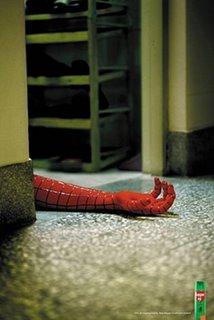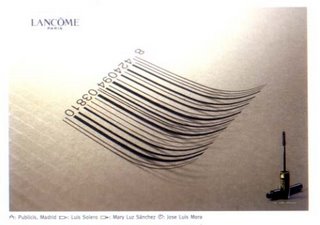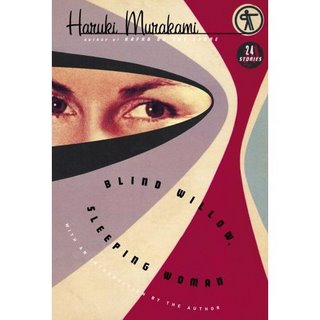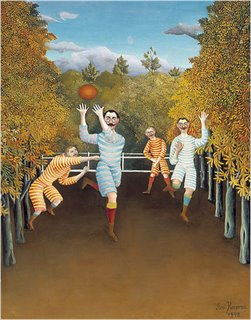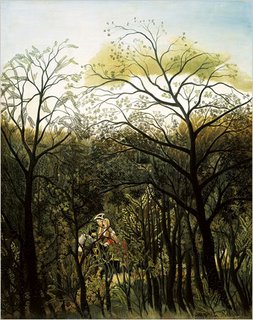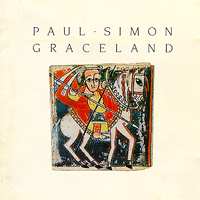Funny how things happen. You may recall my telling of how I came about reading A Prayer for Owen Meany.
Let's rewind to the end of May. I received the following e-mail from someone I had never met:
"Hello, I stumbled on your top 20 booklist while looking up some info on Haruki Murakami. Run, do not walk to get Helen DeWitt's The Last Samurai (no relationship to the Hollywood film by that name). If I had an all-time list, this book would easily be in the top five. Cheers--
Keneta"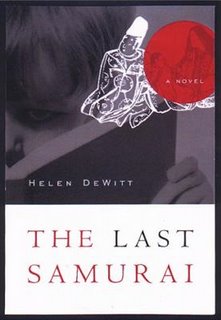
Now, I do not take book recommendations lightly. Ask anyone. Ask the Mrs., she will tell you how resistant I am to even reading books that she says I should read. But this e-mail intrigued me.
First, the recommendation was in juxtaposition with Murakami, one of my favorite writers. Second, I had never heard of this book, which appealed to me as well. Had she said to go read Dan Brown's DaVinci Code, I would have had further resistance to it. But clearly this stranger felt passionately about a book, so much so that she felt it necessary, almost obligated to pass on the good word. That fascinated me.
I received this on a Friday, and the book club I belong to was meeting the following Tuesday. I printed out the synopsis and read it to the group. I can't speak for the folks that were there, but the impression I received was that such a book was unappealing at best. This is what I read:
Helen DeWitt's extraordinary debut, The Last Samurai, centers on the relationship between Sibylla, a single mother of precocious and rigorous intelligence, and her son, who, owing to his mother's singular attitude to education, develops into a prodigy of learning. Ludo reads Homer in the original Greek at 4 before moving on to Hebrew, Japanese, Old Norse, and Inuit; studying advanced mathematical techniques (Fourier analysis and Laplace transformations); and, as the title hints, endlessly watching and analyzing Akira Kurosawa's masterpiece, The Seven Samurai. But the one question that eludes an answer is that of the name of his father: Sibylla believes the film obliquely provides the male role models that Ludo's genetic father cannot, and refuses to be drawn on the question of paternal identity. The child thinks differently, however, and eventually sets out on a search, one that leads him beyond the certainties of acquired knowledge into the complex and messy world of adults.
The novel draws on themes topical and perennial--the hothousing of children, the familiar literary trope of the quest for the (absent) father--and as such, divides itself into two halves: the first describes Ludo's education, the second follows him in his search for his father and father figures. The first stresses a sacred, Apollonian pursuit of logic, precise (if wayward) erudition, and the erratic and endlessly fascinating architecture of languages, while the second moves this knowledge into the world of emotion, human ambitions, and their attendant frustrations and failures.
The Last Samurai is about the pleasure of ideas, the rich varieties of human thought, the possibilities that life offers us, and, ultimately, the balance between the structures we make of the world and the chaos that it proffers in return. Stylistically, the novel mirrors this ambivalence: DeWitt's remarkable prose follows the shifts and breaks of human consciousness and memory, capturing the intrusions of unspoken thought that punctuate conversation while providing tantalizing disquisitions on, for example, Japanese grammar or the physics of aerodynamics. It is remarkable, profound, and often very funny. Arigato DeWitt-sensei.
In essence, this sounded like no other book I had ever read, and was instantly drawn to it. Of course, it helped that I enjoyed Kurosawa's
Seven Samurai, which is an integral piece of the book.
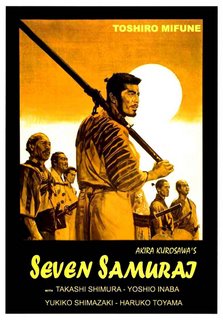
I will admit, this book is not for everyone. Initially it was a bit of a struggle, as we are given the
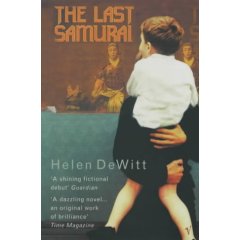
perspective of Sibylla, the female protagonist raising her son, Ludo, in London, while struggling to make ends meet. Ludo is a prodigy, and he learns multiple languages (Greek, Hebrew, Inuit, etc) at an early age. There are digressions that distract, but prove essential to the narrative.
Ultimately, however, the narrative thread shifts solely to Ludo, and Sybilla becomes a secondary character. Ludo holds the stage and captures the imagination. It is quite breathtaking.
Does this brilliant book kick down the door of my top 20 list? No, but it does come with my recommendation, and is worth the effort. I was truly sad to see the book end. I wanted more of Ludo and his brilliant quest, but that was not to be. Janet Maslin, in the New York Times, stated in December 2000:
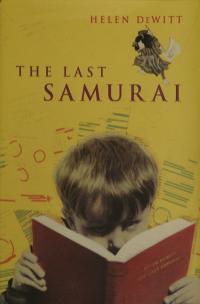 In an exhilaratingly literate and playful first novel punctuated by divine feats of intellectual gamesmanship, Ms. DeWitt joins Dave Eggers, Zadie Smith and Michael Chabon in going to the head of this year's class of flamboyantly ambitious novelists whose adventurousness spins out on an epic scale. And like their books -- ''A Heartbreaking Work of Staggering Genius,'' ''White Teeth'' and ''The Amazing Adventures of Kavalier & Clay,'' respectively -- her ''Last Samurai'' is a sprawling, aggressively showy book with flashes of genius to keep it soaring. It is possible to recognize the hubris here without, like Ms. DeWitt's characters, being able to read that word in Greek or elaborately analyze its derivation. But it's also possible to be utterly delighted by this author's high-risk
In an exhilaratingly literate and playful first novel punctuated by divine feats of intellectual gamesmanship, Ms. DeWitt joins Dave Eggers, Zadie Smith and Michael Chabon in going to the head of this year's class of flamboyantly ambitious novelists whose adventurousness spins out on an epic scale. And like their books -- ''A Heartbreaking Work of Staggering Genius,'' ''White Teeth'' and ''The Amazing Adventures of Kavalier & Clay,'' respectively -- her ''Last Samurai'' is a sprawling, aggressively showy book with flashes of genius to keep it soaring. It is possible to recognize the hubris here without, like Ms. DeWitt's characters, being able to read that word in Greek or elaborately analyze its derivation. But it's also possible to be utterly delighted by this author's high-risk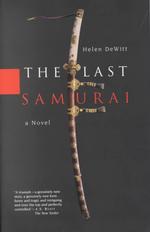 undertaking and her fresh, electrifying talent.
undertaking and her fresh, electrifying talent.
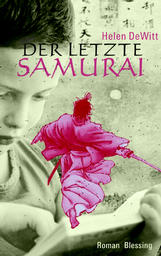
That's some nice company for Ms. DeWitt. Maslin continues:
Along the way, the reader will also learn the Icelandic word for seal meat and the precise way (''heptakaiogdoekontapodal'') to indicate an 87-legged spider, which is a concept Ludo comes up with after he sketches an 88-legged one and imagines that it got into a fight and lost a leg.
Surely, that's not useful information, but it is definitely fascinating. And a last word from Maslin, whose full review is
here:
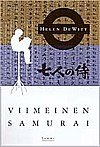
Ms. DeWitt, an American who seems to have written this book as if her life depended on it and poured vast reserves of inquiring intelligence into the process, saves her most fanciful efforts for presenting potential candidates for the role of Ludo's father. She spins enchantingly surreal stories about the overrated artist, the Nobel laureate, the foreign correspondent and the bogus consul (''When asked why he had impersonated a member of the Belgian diplomatic corps he had replied: Well, someone had to'') on the short list of candidates whom Ludo sequentially discovers.
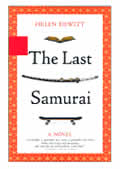
Maybe time will slip this onto my top 20 list. It certainly is a worthy effort, and one that I recommend to those patient and curious enough to give her a shot.
I'll leave you with this bit of biographical tidbit: "In 2004, it was widely reported that Helen DeWitt had gone missing from her Staten Island home after sending a suicidal e-mail, but she was later found unharmed near Niagara Falls."













